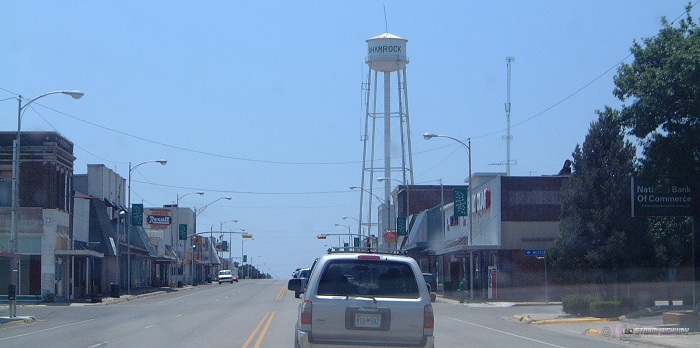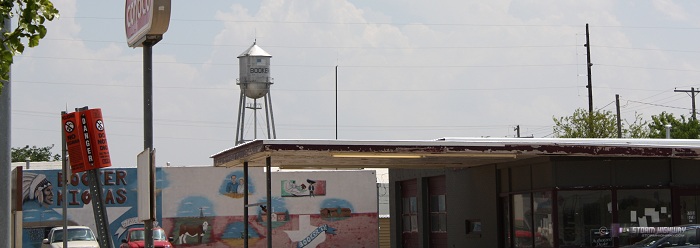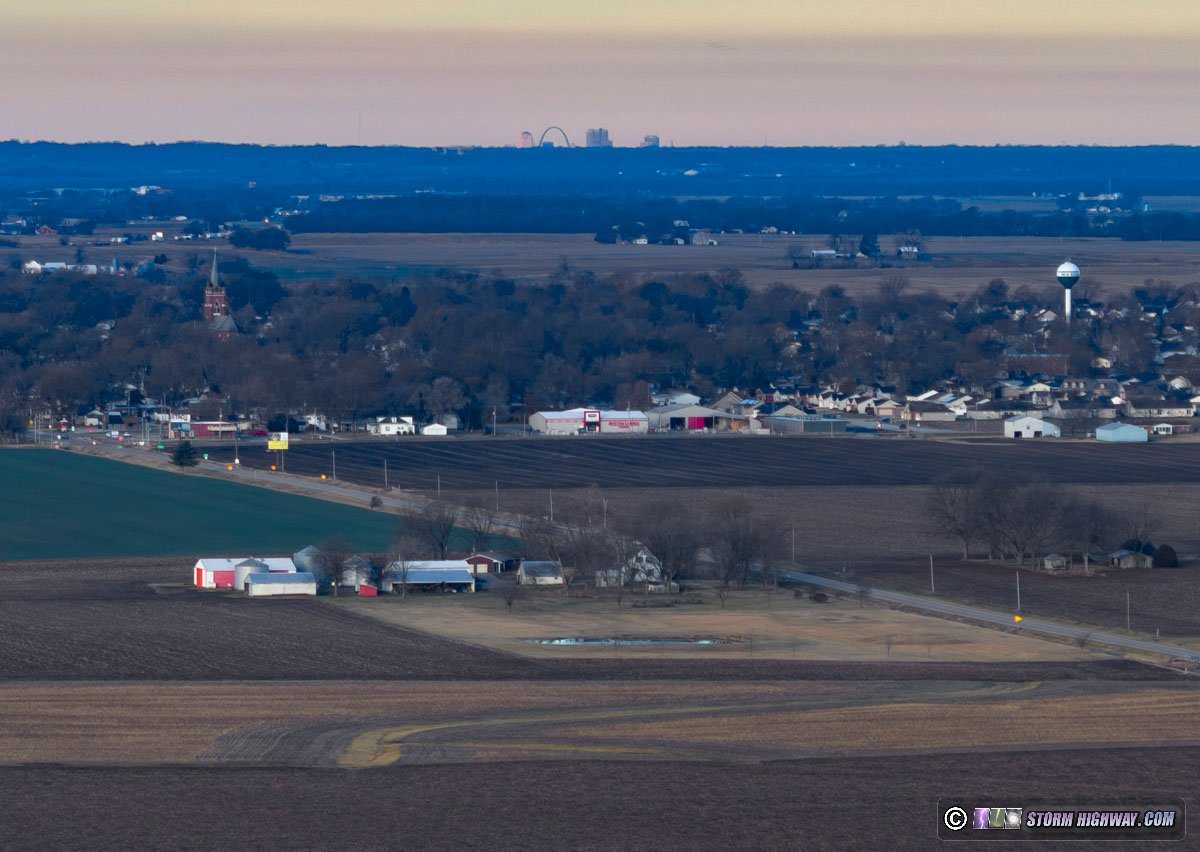|
Home | Blog Index | Blog Archives | Christianity & Faith Essays | Storm Chasing Essays
Is a "Second Home" on the Great Plains worth it?
|
In September of 2025, my work is generating the most income it ever has in my career. Yet, I'm being forced to shut down my successul operation, against my will, due to one cause alone: 95% of that revenue is being stolen by piracy and copyright infringement. I've lost more than $1 million to copyright infringement in the last 15 years, and it's finally brought an end to my professional storm chasing operation. Do not be misled by the lies of infringers, anti-copyright activists and organized piracy cartels. This page is a detailed, evidenced account of my battle I had to undertake to just barely stay in business, and eventually could not overcome. It's a problem faced by all of my colleagues and most other creators in the field. |

Every once in a while, the subject of storm chasers buying a second home in the Great Plains comes up for discussion. In some cases, this is seen as a step toward the dream of living in "Tornado Alley". For others, it's thought as a potential convenience and/or money-saver over hotel costs through the course of a season.
For many years, I had dreamed of buying a second house in a small town on the Great Plains for both of those reasons. Eventually, I began to seriously consider it. I did the research and the math, and scoured real estate databases for available properties. It didn't take me long, however, to come to the conclusion that the idea is not a very good one, at least for purely financial and logistical reasons.
First, I'll list the advantages to buying a home in a small town on the Plains:
- Home Prices. Real estate prices in the rural Plains states are some of the lowest in the country, making the second home idea an affordable venture for the average person. A small house in a remote Great Plains town with ~3 bedrooms, 1 bath and a quarter-acre lot can often be found priced under $30,000. Many of those are in livable shape as-is with little to no work required. Low property values also mean lower taxes and insurance rates. If you're willing to allocate $50,000 or more on a home, your options become more plentiful and better equipped - many featuring two stories, two or more bathrooms, basements, garages and big yards. Dollar-for-dollar, you get many times more in a home than you would in the average large metro area.
- Proximity to a few classic tornado setups. Relocating will indeed put you in a position to have several classic tornado events each season within an easy drive (during an average year).
- No hotel costs during downtime. A two-week death ridge? No problem, just go home and relax. Mow the lawn, relax on the porch, take walks and enjoy the clear blue sky sunsets.
- Small Plains town benefits. Low crime rates, a unique, relaxed atmosphere and wide open skies should make for a great quality of life at home.
Now, let's do a reality check and look at the disadvantages:
- The annual costs of homeownership far exceed total hotel costs for an above-average chase season. Your rough annual cost for a house in the $30,000-$60,000 range (1,000 square feet or less in a remote Plains town) will run at least $5,000 to $7,000 or more per year when you consider mortgage, property taxes, insurance, utilities, maintenance, lawn care, furniture and the much-needed trip or two during the winter/off season to check up on it. That's not counting unforeseen repairs, which if you already own a home you know are an inevitability. Owning a mostly-vacant home remotely also has its pitfalls, like higher insurance rates and a greater risk of a host of problems developing while you're not there. Renting it out may be an option, but there again, being a landlord opens an entirely new 'can of worms' rife with risks and complications.
The most I ever chased in the Plains in a single season was one full month (in 2005), and I didn't go much over $2,000 in hotel costs. So at least in my case, owning a second house on the Plains would cost far more per year than using hotels for the chase trip of an average length. You would need to be an entire-season chaser (March to July) to begin to break even against using hotels. And even then, that's not guaranteed due to the next item on this list.
- Even with a Plains home base, you will still use hotels frequently when chasing. A storm chasing trip in the Plains will typically require targeting areas at great distances from each other from day to day. It is very rare to be chasing only in one region of the Plains, even over the course of a few days. If you chase an entire season, you will be everywhere from North Dakota to central Texas and back again five times. The Great Plains is an incredibly vast area, and there's not any one place you could establish a 'home base' that would prevent you from needing to drive long distances and therefore need overnight hotel stays. If you chose a western Kansas base, for example, you won't be able to chase central Nebraska, South Dakota, the southern Texas Caprock or even eastern Kansas without at least one overnight hotel stay. The distances may look manageable on a map, but when it's midnight after a long chase day, you're not going to want to drive 4 hours to get back to your house. At best, a house may save you maybe half of your normal hotel expenditures per chase season.
- Small towns have few conveniences, with long-distance drives required for everyday activities. Need a gallon of milk? Have a craving for Chinese food? A dental or eye doctor appointment? Need to get an oil change? If you live in most small Plains towns, doing any of those things will require two hours or more of your time just for the trip, particularly after daytime business hours when only the biggest towns have stores still open. Running out of a food ingredient while making dinner at night could require a 3-hour trip (or longer) to resolve. With gas prices so high, those trips can really add a significant amount to your cost of living. If your town has a small grocery store, its prices will often be 2 to 3 times what you'd pay at a big chain store - with usually little more than the bare necessities stocked. Small-town groceries also have problems with moving inventory quickly due to low sales volume, meaning it's common for items to be out-of-date. I suppose you could buy two weeks worth of food at a time from a distant chain store, but you'd need a second refrigerator or a separate freezer to store it all.
I think if you're like me, all of the day-to-day inconveniences of small town living may outweigh its atmosphere in terms of quality of life, especially over time.
- Sale of your home will be difficult. If you choose to purchase property in a remote Plains town, expect considerable difficulty getting rid of it if you ever change your mind. The reason that you were able to buy the house at such a low price is the same reason you'll probably end up having to keep it for a long time. It became apparent to me when looking into this that if I bought a house in a remote Plains town, there was a good chance it would be a lifetime decision, or at least one that would result in me taking a big loss to get rid of it.
- Small towns have no economy. This bullet point is more for the permanent resident than the chase-season-only vacationer. Unless you 'telework' from home for a big company, good luck finding employment close to your small town house. Your only real chance for a steady job may be in the closest mid-size town, which again, will add another long commute to your daily routine. Even though your cost of living may be lower, I think you'll find trouble securing an income that will support even that, much less allow you to 'live your dream' of chasing storms around your new home. Most small towns in the Plains are either completely destitute of any economic base, or are seeing their existing business cores irreversibly dwindling.
- Small towns have few people. The population in small Plains towns reflect their economic situation, with most younger people moving away to find work. Unless you are a complete loner, the isolation factor in these places could be a major issue for you.
Considering all of the pros and cons, it's clear that there is no economic or logistical benefit to owning a second home in the Great Plains for the purposes of storm chasing. Now if it's really what you want to do, and money's no object to you, then by all means do it! Just be aware that it's going to be a luxury expense, costing you far more per year than you'd spend on hotels during a typical chase trip.

That said, I have heard some ideas floated around that might make a Plains small-town home base more feasible, but these still aren't without their drawbacks:
- Find a homeowner willing to do seasonal short-term or month-to-month leases. I've heard of some chasers scoring deals like this in the $300/month range or even less. I would imagine doing this would require a bit of legwork each season, and you'd have the issue of moving furniture and belongings to and from the home twice a year. Once again, you're still going to be shelling out money for hotels anyway, while still committing to the rent payment. What if you rent a house in Oklahoma and you end up chasing in Nebraska and the Dakotas for the bulk of the season?
- Purchase and share multiple homes with a group of chasers. A small network of strategically-located homes owned by a group of entire-season chasers may also be a solution. For example, if 5-10 or more chasers each bought a home in different regions of the Plains, and all agreed to make thier respective home available to the others in the group, you may be able to begin to make an impact on the need for hotels. I could imagine each of these homes having a hostel-type room with bunk beds and cots for when the weather patterns brought everyone to the same place. A possible such network might include houses near Plainview (TX), Lawton (OK), Woodward (OK), Salina (KS), Ponca City (OK), North Platte (NE), Yankton (SD) and Burlington (CO). In essence, you'd almost always have a home base within a reasonable drive of each day's target and end-of-chase location.
Of course, for such an idea to work, you would need a close-knit group, all financially able to commit and willing to bind themselves to maintaining their respective house and making it open and available to all of the others. Probably a tall order these days!
Now I've spent this entire post talking about the small, remote towns in the Plains. If you're willing to concede small town life, the big cities in the Plains offer some alternatives. Towns on the outskirts of the metro areas like Oklahoma City, Amarillo, Lubbock and Wichita offer better access to jobs, conveniences and people - with one big drawback: you won't find $30,000 houses there (at least ones fit to live in)!
While I went through the Plains house exercise originally for "second home" intentions, it eventually became for the purposes of a total relocation from West Virginia. I thought seriously about moving outright to one of the places I'd been looking at houses in. But when the day came that I actually decided to move, I didn't choose a Great Plains small town mainly because of some of the drawbacks I listed above. I do live in a small town now, but it's within the St. Louis metro area. I only have a 12 minute drive to a nice grocery store and to church, a 15 minute drive to good restaurants and major big-box stores, and 25 minutes to be in the downtown core of a major city. I also was easily able to find a decent job here when the economy started crushing my other income sources, a situation that would have been dire had I moved to somewhere like rural western Kansas.

My town in the eastern St. Louis metro area (with the Arch and downtown in the background)
Ironically, I ended up getting the full experience of having a "second home", only in reverse! From 2010 to 2012 after I moved to the St. Louis area, my house in West Virginia remained on the market. It was a real burden to take care of a house while living 500 miles away, in both time and costs. I even had to go through the nightmare of filing an insurance claim when a storm toppled a tree onto the house, puncturing the roof and severing the power connection. Yardwork and regular maintenance still had to be done as well, which I ended up choosing to pay someone local to do rather than driving back to do it myself. That entire experience was enough to convince me that I don't ever want to own a home "remotely" again. Taking care of and paying for one household is enough for me!
|